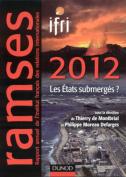The Economic Opportunities and Constraints of Green Growth: The Case of South Korea
L' "anti-environnementalisme", nouveau thème des conservateurs américains
Opposing environment protection policies has become a posture de rigueur for U.S. radical conservatives, especially in view of the 2012 campaign. This theme finds itself at the crossroads of several currents of American conservatism: a distrust of scientific elites, trust in the Manifest Destiny of the country, the defense of U.S. states and citizens against Washington and of the country as a whole against the rest of the World.

RAMSES 2012. Les États submergés ?
RAMSES (Le Rapport annuel mondial sur le système économique et les stratégies), is a yearly publication that provides in-depth reviews and prospective analysis on current events, providing readers with indispensable insights and perspectives for understanding contemporary geopolitics on the global scale.
A Tragic Tale of Corn and Congress
Ever since Iowa landed the privilege of holding the first Presidential primary, no candidate has the political courage to confront the $11 billion subsidy price tag of US corn ethanol. Everyone agrees we need to dilute our supply and price vulnerability in transportation fuels and everyone agrees we need to decarbonize the transport sector. But surely not this way.
Economic Policies Following the Great East Japan Earthquake
Ifri and the Canon Institute for Global Studies are launching a series of policy papers presenting the analyses of senior Japanese researchers on how the triple disasters that hit the archipelago last March have impacted Japan's economic, environmental and energy policies as well as country's crisis management system.
This first paper deals with a number of the economic challenges that have arisen following the earthquake, tsunami and nuclear crisis, and considers the direction that future economic policies in Japan should take.
What's in a Name? Market-based Instruments for Biodiversity
The use of Market-based Instruments (MBIs) for the management of biodiversity and ecosystem services - carbon trading schemes, payment for ecosystem services, mitigation banking, etc. - is currently booming. But the definition and underpinning theory of these tools remain unsettled. It is therefore necessary to advance in the definition, theory and consistent classification of these instruments.
Making Sense of One Health: Cooperating at the Human-Animal-Ecosystem Health Interface
This study aims at showing and making sense of the One Health approach, according to which it is impossible to defeat infectious disease without working at the interface between human health, animal health and the environment.
Migrations et développement : l'enjeu environnemental et l'avenir des politiques migratoires
This paper analyzes the future of migrations related to climate changes and environment degradations.
Carbon Dioxide Emissions: 17 Years ans still Talking
The 15th annual Conference of the Parties in Copenhagen last year saw delegations from 192 countries come together in an attempt to establish a global climate agreement for 2012 before the end of the first commitment period of the Kyoto protocol (2008-2012). This paper will examine how these figures have changed since Kyoto base year 1990, before looking at certain countries" proposals for the future of their carbon dioxide emissions.
Jurassic Oil
Why do we have to drill through a mile of water and then three miles of rock to get oil? Surely there are better options in the world’s geologic resource base than deep, acidic, high pressure deposits that threaten the waters and coasts of the Gulf of Mexico, Gulf of Guinea, Campos Basin, Barents Sea and the Caspian. Most of this is oil that got deposited even before continental drift started.
Support independent French research
Ifri, a foundation recognized as being of public utility, relies largely on private donors – companies and individuals – to guarantee its sustainability and intellectual independence. Through their funding, donors help maintain the Institute's position among the world's leading think tanks. By benefiting from an internationally recognized network and expertise, donors refine their understanding of geopolitical risk and its consequences on global politics and the economy. In 2024, Ifri will support more than 70 French and foreign companies and organizations.









